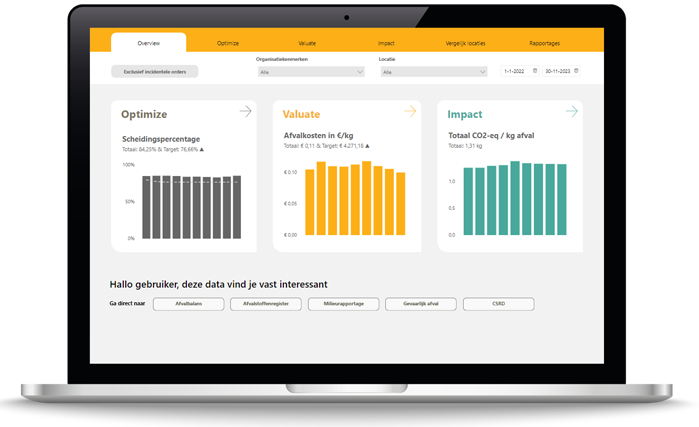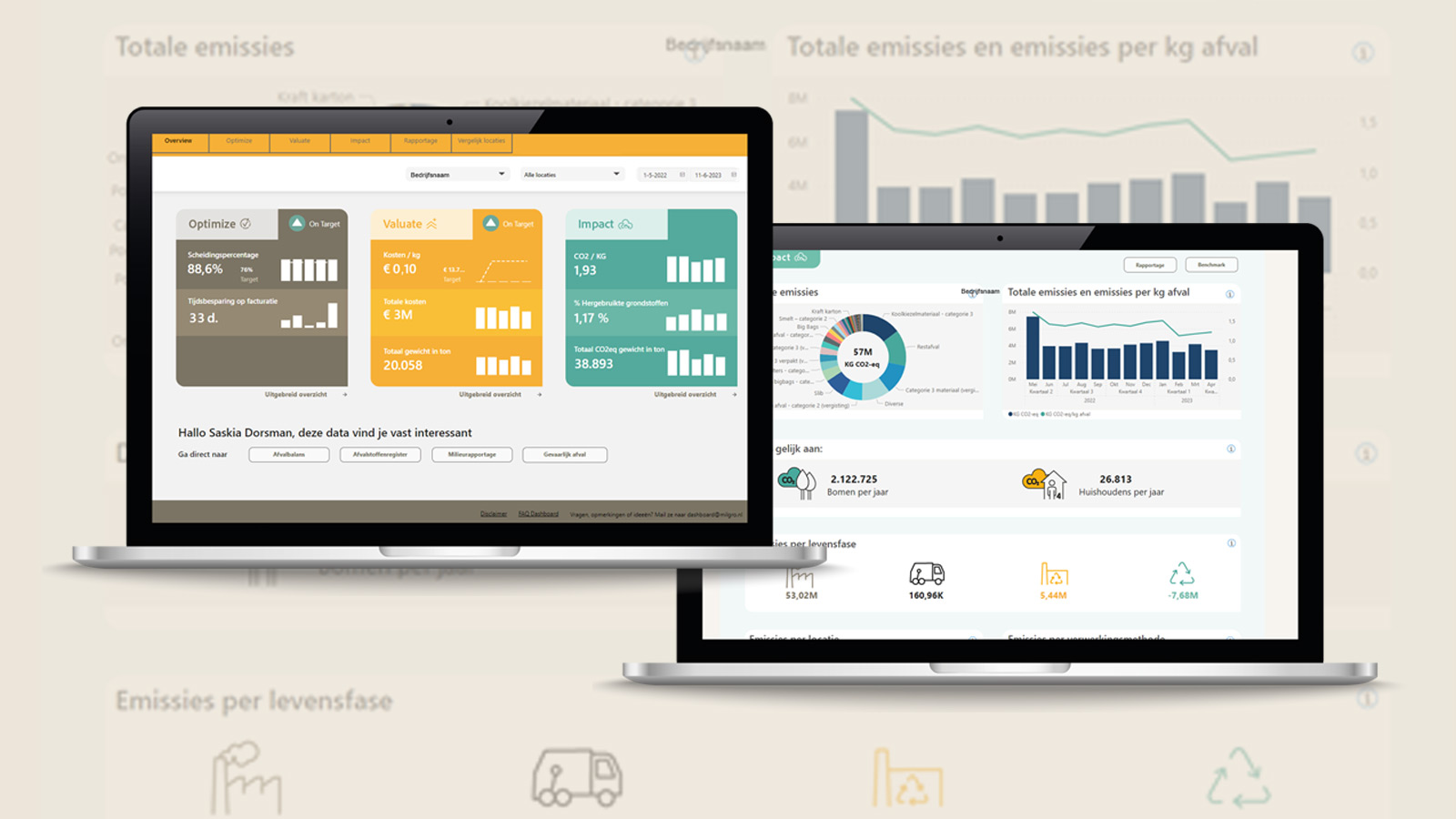Sustainability plays a major role in every business today. In this regard, effective management of waste and raw materials is essential. Only then can your company meet the increasingly strict regulations and sustainability goals. With over 30 years of experience, Milgro guides companies to a waste-free world in 2040. Today we talk about an important aspect of waste management: the European Waste List, or EURAL.
What is EURAL?
The European Union has been striving for a uniform approach to waste management for many years. To provide member states with a common basis for identifying, classifying and registering waste, the EURAL entered into force on May 8, 2002. The European Waste List (EURAL for short) is the backbone of effective waste management. Under the Environmental Management Act, it is a legal requirement for companies to report and register waste materials with the Landelijk Meldpunt Afvalstoffen (LMA), using Eural codes.
The goal of the EURAL is to have a uniform classification on waste throughout Europe. And thus, for example, provide insight into whether a waste is considered hazardous or non-hazardous. Wastes must be reported and registered based on EURAL waste codes.
800 Waste streams and EURAL
The EURAL contains over 800 waste streams, arranged by origin, business activity and type of waste. Each waste is thereby assigned a six-digit Eural code. Substances labeled as hazardous also have an asterisk (*) next to their code. In view of the upcoming CSRD legislation, it is very important for a company to have insight into its hazardous waste.
EURAL in practice
The European Commission places the responsibility for determining the correct Eural codes with the discarder of the waste. This was done because the moment in the production process at which the waste stream is released determines the Eural code. In practice, recipients of the waste stream sometimes also determine the waste code themselves.
Companies that produce waste must adhere to strict regulations. A thorough administration is therefore indispensable. First of all because of potential risks to people and the environment. But also to avoid legal complications.
EURAL and the CSRD
The Corporate Sustainability Reporting Directive (CSRD) goes into effect on Jan. 1, 2024. This law requires companies to report transparently on various sustainability aspects. A detailed analysis of waste management and all waste streams within the company is one of them.
The EURAL is invaluable for this sustainability reporting. By properly classifying your waste streams based on the EURAL, you distinguish hazardous from non-hazardous waste. It is a standardized, accepted method of separating hazardous from non-hazardous waste. This allows a more efficient assessment of environmental impact.
Waste register: the Netherlands versus Belgium
Compared to the Netherlands, Belgium leads the way in waste management. This is due to the mandatory waste register. Since Jan. 1, it has been mandatory for companies to record in detail where their waste streams come from, where they go and how they are processed. The MATIS materials information system is used for this purpose. A step toward transparency and traceability that contributes to more sustainable business operations.
Getting your records in order for EURAL
The EURAL is a practical tool to gain insight into your waste management. In doing so, you take an important step toward meeting the reporting requirements set by the CSRD. But moving toward a waste-free future doesn't just become a legal obligation. It also constitutes a strategic choice in a business landscape that values sustainability. It is an opportunity to excel in environmental performance and corporate social responsibility.
Accurate assignment of the correct Eural code is also an important step in assessing potential environmental risks. Good administration supports the entire waste management chain: from identification to transportation.
An organized administration lies at the heart of the responsible transportation of waste. For example, a transporter may not drive without an internationally recognized transport document. The so-called CMR document (Covention relative au Contract de Transport International de Marchandises par Route) describes the nature of the goods and specifies the corresponding Eural codes.
Usually it is enough to search the EURAL for a code that best fits a waste. Sometimes this results in both a hazardous and non-hazardous code. In that case, look at the hazardous properties of the waste to determine the appropriate waste code.
Milgro Dashboard and EURAL
Do you want to keep a clear overview in the complex system of waste management? Then we would be happy to support you with the Milgro Dashboard. With more than 30 years of experience, we know everything about waste. And you will notice that! Together we ensure that you assign the correct Eural codes to your waste materials.
The Milgro Dashboard provides insight into your waste streams. Think of clear reports and analyses on your waste streams, such as insight into:
- Weight and costs: the total weight of your waste and the associated costs and savings
- Your total emissions in CO2-eq and these also broken down by waste stream, location or processing method
- Hazardous waste, broken down by stream, weight, location or disposal method
- Eural codes
This allows you to maintain full control over your waste management. You fulfill your legal obligation for waste from the Environmental Management Act and CSRD, but also bring about positive change. With Milgro as your partner, you take concrete steps toward a waste-free future.
Want to know more about EURAL and waste management?
Managing waste according to EURAL and related legislation can be challenging. It can be difficult to keep track of all the rules and data. How do you know if your company complies with all the new European legislation for reporting sustainability targets?
Clear dashboards and reports are indispensable in this regard. With the Milgro Dashboard you are well prepared for the new European legislation.
Stay informed
Stay up to date on all new developments? Follow us on LinkedIn or Instagram. Or subscribe to the newsletter. Are you curious about what Milgro can do for your operations and waste process? Contact us












